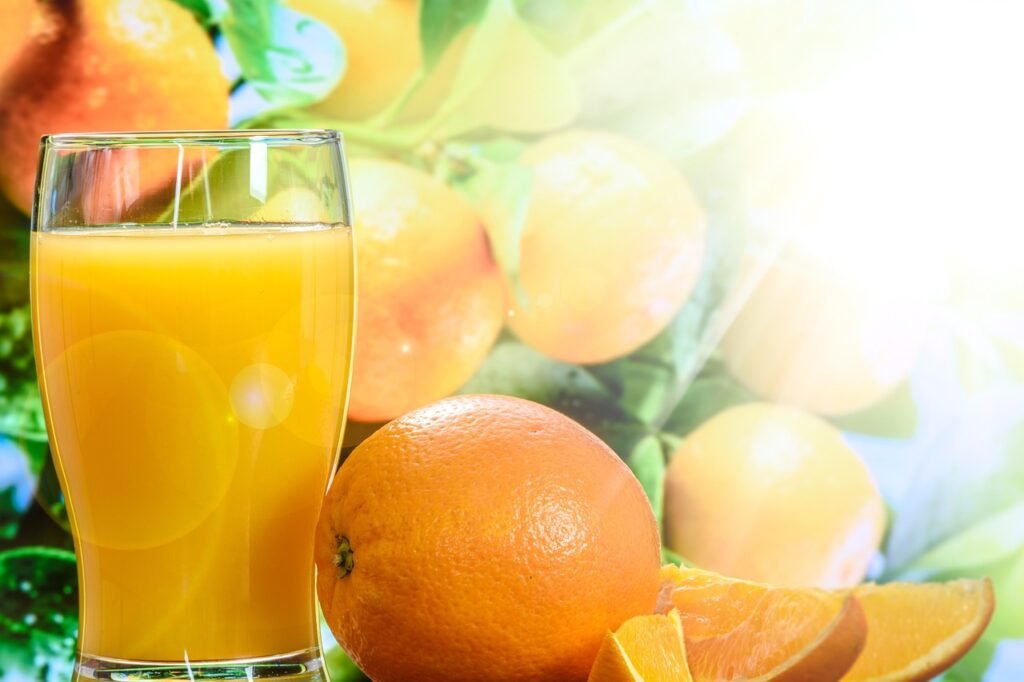Are There Any Negatives To Juicing?
In recent years, juicing has become increasingly popular as a way to incorporate more fruits and vegetables into your diet. However, like anything else, there may be some downsides to juicing that you should be aware of. In this article, we will explore the potential negatives of juicing, as well as provide some tips on how to make the most of this healthy habit.

Negatives To Juicing #1: Lack of Fiber
One of the main drawbacks of juicing is that it can lead to a lack of fiber in your diet. When you juice fruits and vegetables, you are essentially removing the pulp and skin, which are rich in fiber. Fiber is important for digestive health and can help prevent constipation. Without an adequate amount of fiber in your diet, you may experience digestive issues such as bloating or irregularity.
Tip:
To combat the lack of fiber in your juice, consider adding some of the pulp back in after juicing. You can also incorporate other high-fiber foods into your diet, such as whole grains, legumes, and nuts.
Negatives To Juicing #2: High Sugar Content
Another potential downside to juicing is the high sugar content of some fruit juices. While fruits are naturally sweet and can be a healthy part of your diet, consuming large quantities of fruit juice can lead to spikes in blood sugar levels. This can be problematic for individuals that are more at risk for problems related to high blood sugar levels and/or those who are trying to manage their weight.
Tip:
To reduce the sugar content of your juice, try incorporating more vegetables into your recipes. Vegetables like spinach, cucumber, and kale are low in sugar but high in essential nutrients.
Negatives To Juicing #3: Cost
Juicing can also be expensive, especially if you are using organic produce or specialty ingredients. Fresh fruits and vegetables can be pricey, and if you are juicing on a regular basis, the costs can add up quickly. Additionally, investing in a high-quality juicer can be a significant upfront expense.
Tip:
To save money on juicing, consider shopping for produce at local farmer’s markets or buying in bulk. You can also freeze excess fruits and vegetables to use in your juices later on.
Negatives To Juicing #4: Oxidation
During the juicing process, fruits and vegetables are exposed to oxygen, which can lead to oxidation. Oxidation can degrade the nutrients in your juice, reducing its overall health benefits. To minimize oxidation, it’s best to drink your juice as soon as possible after juicing.
Tip:
If you need to store your juice for later consumption, consider using airtight containers or vacuum-sealed bottles to help preserve its freshness and nutrients.

Negatives To Juicing #5: Caloric Intake
While juicing can be a great way to increase your intake of vitamins and minerals, it’s important to be mindful of your overall caloric intake. Some juices can be high in calories, especially if they contain a large amount of fruit. Consuming too many calories from juice can lead to weight gain over time.
Tip:
Keep track of the ingredients you are using in your juice and try to balance high-calorie fruits with lower-calorie vegetables. You can also use juice as a meal replacement or snack instead of consuming it in addition to your regular meals.
Negatives To Juicing #6: Nutrient Imbalance
Another potential negative aspect of juicing is the risk of creating a nutrient imbalance in your diet. While fruits and vegetables are rich in essential vitamins and minerals, they may not provide all of the nutrients that your body needs to function optimally. It’s important to vary your diet and include a wide range of foods to ensure that you are getting all of the nutrients you need.
Tip:
Consider juicing as a supplement to your regular diet, rather than a replacement for whole foods. This way, you can ensure that you are still getting a diverse array of nutrients from other food sources.

Negatives To Juicing #7: Digestive Distress
Some individuals may experience digestive distress when they first start juicing, particularly if they are sensitive to certain fruits or vegetables. Bloating, gas, or stomach cramps can be common side effects of juicing, especially if you are consuming large quantities of juice in a short period of time.
Tip:
If you are experiencing digestive issues while juicing, try to identify the specific ingredients that may be causing problems. You can also try diluting your juice with water or herbal teas to make it easier on your digestion.
Negatives To Juicing #8: Dental Health
The high sugar content in some fruit juices can also have a negative impact on your dental health. Consuming sugary drinks, even those that are made from natural fruit juices, can contribute to tooth decay and cavities over time. It’s important to practice good oral hygiene and limit the frequency of consuming sugary juices.
Tip:
After drinking juice, rinse your mouth with water or brush your teeth to help reduce the risk of tooth decay. You can also drink juice through a straw to minimize contact with your teeth.

Negatives To Juicing #9: Lack of Satiety
Drinking juice alone may not provide the same level of satiety as eating whole fruits and vegetables. Juicing removes the fiber and bulk from produce, which can leave you feeling hungry shortly after consuming a juice. This can lead to overeating or reaching for unhealthy snacks to satisfy your hunger.
Tip:
To increase the satiety of your juice, consider adding sources of protein and healthy fats, such as nut butter or chia seeds. You can also pair your juice with a small snack or meal to help keep you full for longer.
Negatives To Juicing #10: Allergies and Sensitivities
If you have allergies or sensitivities to certain foods, juicing can exacerbate these issues. Consuming large quantities of a particular ingredient in juice form can trigger allergic reactions or digestive upset in some individuals. It’s important to be mindful of your own food sensitivities when juicing.
Tip:
Consult with a healthcare professional or allergist if you suspect that you may have food allergies or sensitivities. They can help you identify problematic ingredients and develop a safe juicing plan that works for your specific needs.
Conclusion
In conclusion, while juicing can be a convenient way to increase your intake of fruits and vegetables, there are some potential negatives to consider. By being aware of the drawbacks of juicing and making small adjustments to your routine, you can continue to enjoy the benefits of juicing while minimizing the potential downsides. Remember to listen to your body, experiment with different ingredients, and seek advice from healthcare professionals as needed to find a juicing routine that works best for you.


